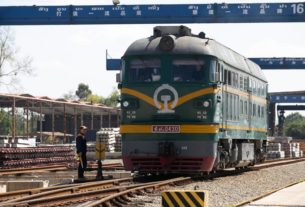 In brief, Arbitration formalities in Thailand
In brief, Arbitration formalities in Thailand
UNCITRAL Model Law
Is the arbitration law based on the UNCITRAL Model Law?
Thai arbitration law as codified under the Thai Arbitration Act BE 2545 (AD 2002), generally modelled upon the UNCITRAL model, which replaced the 1987 Act. Two forms of arbitration are recognised under Thai law: in-court arbitration and institutional arbitration.
In-court arbitration is governed by the Civil Procedural Code. The parties file with the court a joint application to submit a dispute in reference or all issues pending before a court of first instance to the arbitrator for settlement.
At present, there are three well-known arbitration institutions in Thailand: the Thai Commercial Arbitration Committee of the Board of Trade of Thailand, the Thai Arbitration Institute and the Thai Arbitration Centre.
In addition, arbitration has been promoted by various government authorities to solve commercial disputes governed by special laws. For example, disputes arising from insurance agreements shall be resolved by a registered arbitrator of the Office of Insurance Commission; disputes arising from intellectual property laws shall be resolved by a registered arbitrator of the Department of Intellectual Property; and disputes arising from securities and exchange laws, provident fund laws or derivative laws shall be resolved by a registered arbitrator of the Securities and Exchange Commission.
Arbitration agreements
What are the formal requirements for an enforceable arbitration agreement?
Arbitration agreements must be in writing and signed by the parties, which may be in the form of a clause in contract or in the form of a separate agreement.
Choice of arbitrator
If the arbitration agreement and any relevant rules are silent on the matter, how many arbitrators will be appointed and how will they be appointed? Are there restrictions on the right to challenge the appointment of an arbitrator?
If the arbitration agreement is silent, a sole arbitrator is appointed. If the parties are unable to agree on the arbitrator, either party may file a motion with the court requesting the court to appoint an arbitrator.
The parties may challenge the appointment of an arbitrator if circumstances exist that give rise to justifiable doubts as to their impartiality, independence or qualification agreed by filing a statement with the arbitral tribunal. If the challenge filed with the arbitral tribunal is unsuccessful, the challenging party may request the court to challenge. Nevertheless, no party shall challenge the arbitrator appointed except where the said party is not aware of the grounds for challenge at the time of the appointment.
Arbitrator options
What are the options when choosing an arbitrator or arbitrators?
The parties may choose arbitrators from the list of arbitrators of the relevant institute. The candidates are equipped with professional experiences ranging from various professions, such as civil and commercial law, engineering, investment, international law and communication technology to cater for various levels of complexity of arbitration. The parties are also free to choose an unlisted arbitrator, subject to mutual agreement of both parties, although this is rare in practice.
Arbitral procedure
Does the domestic law contain substantive requirements for the procedure to be followed?
Arbitral procedure is subject to the rules of the arbitration institutes selected by the parties in arbitration agreements. Where an agreement stipulates that any dispute shall be settled by arbitration without referring to specific arbitration rules, the parties may follow the rules of the institute where the claim is submitted.
Court intervention
On what grounds can the court intervene during an arbitration?
An arbitral tribunal or a party with the consent of the majority of the arbitral tribunal may request the court to issue a subpoena or order for submission of any documents or materials during an arbitration. In addition, a party to arbitration may request the court to issue an order for interim relief before or during the arbitration proceedings. If the court is satisfied that had such proceedings been in court, the court would have been able to issue a subpoena, court orders and interim relief, the court may proceed as requested. The relevant provisions under the Civil Procedure Code apply. Furthermore, the court can make a final decision on silent matters or other matters, such as the appointment, challenging and jurisdiction of arbitrators. The court’s powers cannot be overridden by agreement.
Interim relief
Do arbitrators have powers to grant interim relief?
The Thai Arbitration Act does not expressly afford arbitrators the authority to order interim relief unless the rules of the arbitration institute agreed between the parties specify the arbitral tribunal’s power to award interim remedies. However, there are no formal written laws and it is uncertain as to whether the interim remedies awarded by arbitrators are enforceable.
Award
When and in what form must the award be delivered?
There is no statutory time limit within which an award must be delivered unless otherwise specified in the rules of the arbitration institute. The award shall be made in writing and signed by members of the tribunal. In arbitral proceedings with more than one arbitrator, the signatures of the majority shall suffice, provided that the reason for the omission of signatures for the remaining arbitrators is stated.
Appeal
On what grounds can an award be appealed to the court?
An arbitral award can be challenged in court on the following grounds.
If the party filing the petition can prove that:
- a party was under some incapacity under the law applicable to that party;
- the arbitration agreement is not binding under the law of the country agreed by the parties, or failing any indication thereon, under the law of Thailand;
- the party making an application was not given proper advance notice of appointment of the tribunal or the arbitral proceedings or was otherwise unable to defend the case in the arbitral proceedings;
- the award deals with a dispute not within the scope of the arbitration agreement (if the award on the matter that is beyond the scope thereof can be separated from the part that is within the scope, the court may set aside only the part that is beyond); or
- the composition of the arbitral tribunal or the arbitral proceedings was not in accordance with the agreement of the parties or unless otherwise agreed by the parties.
Where the court finds that:
- the award involves a dispute not capable of settlement by arbitration; or
- the recognition or enforcement of the award would be contrary to public policy.
An appeal against the lower court judgment under the Arbitration Act is filed with the Supreme Court or the Supreme Administrative Court, as the case may be. The appeal against the lower court can only be filed on the following grounds:
- the recognition or enforcement of the award is contrary to public policy;
- the order or judgment is contrary to the provisions of law concerning public policy;
- the order or judgment is not in accordance with the arbitral award;
- the judge who sat in the case gave the dissenting opinion; or
- the order concerns provisional order measures for protection.
Enforcement
What procedures exist for enforcement of foreign and domestic awards?
The award shall only be enforced if it is subject to an international convention, treaty or agreement to which Thailand is a party, and such award shall be applicable only to the extent that Thailand accedes to be bound. The party seeking enforcement of foreign and domestic awards is required to do so in court by filing an application with the competent court within three years of the day that the award becomes enforceable together with the following documents: original or certified copy of the award; original or certified copy of the arbitration agreements; and Thai translation of the award and arbitration agreements.
Costs
Can a successful party recover its costs?
Unless otherwise agreed by the parties, the fees and expenses of the arbitral proceedings and the remunerations for the arbitrator, excluding attorneys’ fees and expenses, are paid in accordance with the terms stipulated in the award.
Law stated date
Correct on
Give the date on which the above content is accurate.
1 April 2020
Article by:
Pisut and Partners Co., Ltd.
7th Floor, Ocean Tower 1
170/15 Ratchadaphisek Road,
Klongtoey, Bangkok, Thailand 10110
Tel.: +66 2026 6226, Fax: +66 2026 6227
Email: info@pisutandpartners.com
Pisut & Partners is a leading law firm based in Bangkok and having profound connections with international law firms across the region and throughout the world. While providing a vast array of general commercial legal services, Pisut & Partners specializes in litigation and arbitration, corporate mergers and acquisitions (M&A), hotels and hospitality, insolvency and restructuring, trade competition, labour and employment, immigration, insurance, transportation, administrative law, and white-collar criminal matters. Notwithstanding our expertise and extraordinary service to our clients, the firm always strives to understand its clients’ needs and budgets.
The team of lawyers at Pisut & Partners boasts a wealth of diverse experience and knowledge, with experience in landmark deals involving hotels and hospitality, corporate, commercial, labour and employment, property, Thai Court proceedings as well as arbitration under the ICC, TAI, and THAC rules.
Source: https://www.lexology.com/library/



